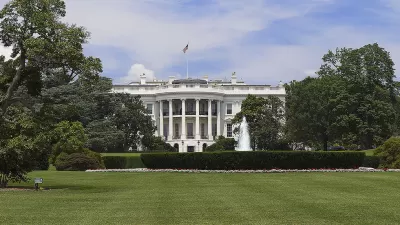New political leadership in Cincinnati is centering housing equity in a proposal that would ease zoning restrictions and streamline Low Income Housing Tax Credits, among other measures.

New Cincinnati Mayor Aftab Pureval announced this week a package of housing reforms that could potentially put a major dent in the city's supply of single-family zones.
Allison Babke summarizes the package as follows in an article for CityBeat:
Pureval said that he will introduce a motion to Cincinnati City Council to conduct a comprehensive housing incentive and zoning review. The motion also would engage residents and remove housing barriers, Pureval said. The review and legislation that follows will guide Cincinnati's future growth and boost mixed-income affordable housing instead of concentrating incentives in neighborhoods that already are wealthy, he added.
According to Babke, Reggie Harris, council member and chair of the equitable growth and housing committee, is already working on a proposal to "update zoning laws that currently deem certain multi-family units illegal."
Both Mayor Puerval and Councilmember Harris are quoted in the article iterating the importance of equity in guiding housing reforms, increasing housing options and affordability in Cincinnati neighborhoods that historically have been left out of redevelopment investments.
A separate article by Becca Costello for WVXU headlines a different component of the proposal: tax abatements to developers applying for federal Low-Income Housing Tax Credits (LIHTC). Councilmember Harris, again, is writing an ordinance that would streamline the LIHTC application process.
Additional news coverage of Cincinnati's new housing reform agenda is available in articles for WCPO and Spectrum News 1.
FULL STORY: Cincinnati Announces New Equitable Housing Policy Reforms

Alabama: Trump Terminates Settlements for Black Communities Harmed By Raw Sewage
Trump deemed the landmark civil rights agreement “illegal DEI and environmental justice policy.”

Planetizen Federal Action Tracker
A weekly monitor of how Trump’s orders and actions are impacting planners and planning in America.

Why Should We Subsidize Public Transportation?
Many public transit agencies face financial stress due to rising costs, declining fare revenue, and declining subsidies. Transit advocates must provide a strong business case for increasing public transit funding.

Understanding Road Diets
An explainer from Momentum highlights the advantages of reducing vehicle lanes in favor of more bike, transit, and pedestrian infrastructure.

New California Law Regulates Warehouse Pollution
A new law tightens building and emissions regulations for large distribution warehouses to mitigate air pollution and traffic in surrounding communities.

Phoenix Announces Opening Date for Light Rail Extension
The South Central extension will connect South Phoenix to downtown and other major hubs starting on June 7.
Urban Design for Planners 1: Software Tools
This six-course series explores essential urban design concepts using open source software and equips planners with the tools they need to participate fully in the urban design process.
Planning for Universal Design
Learn the tools for implementing Universal Design in planning regulations.
Caltrans
Smith Gee Studio
Institute for Housing and Urban Development Studies (IHS)
City of Grandview
Harvard GSD Executive Education
Toledo-Lucas County Plan Commissions
Salt Lake City
NYU Wagner Graduate School of Public Service





























